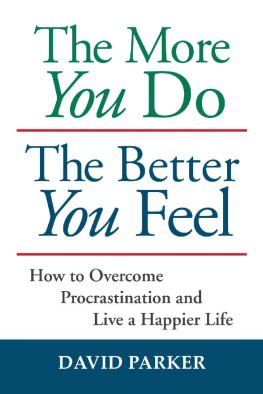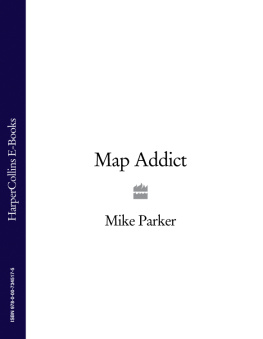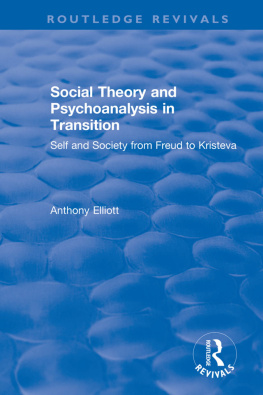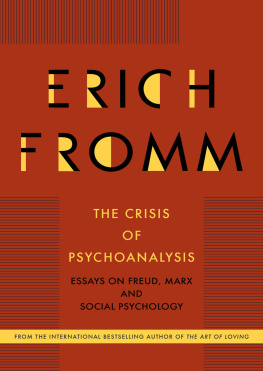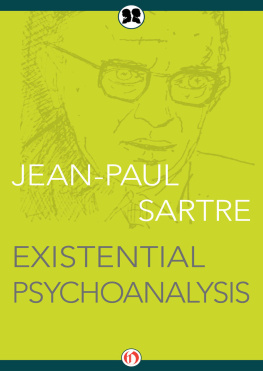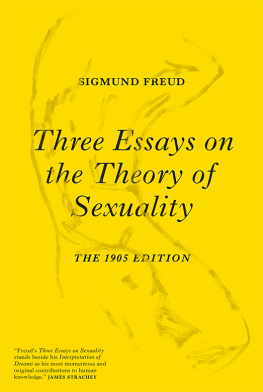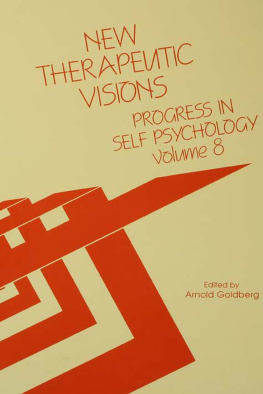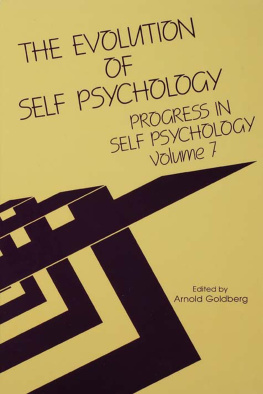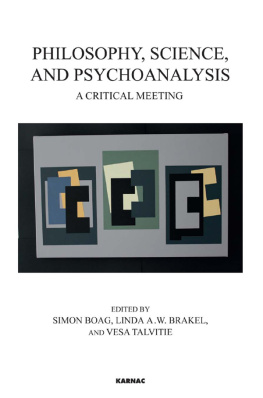Parker - Psy-Complex in Question: Critical Review in Psychology, Psychoanalysis and Social Theory
Here you can read online Parker - Psy-Complex in Question: Critical Review in Psychology, Psychoanalysis and Social Theory full text of the book (entire story) in english for free. Download pdf and epub, get meaning, cover and reviews about this ebook. year: 2018, publisher: Zero Books, genre: Politics. Description of the work, (preface) as well as reviews are available. Best literature library LitArk.com created for fans of good reading and offers a wide selection of genres:
Romance novel
Science fiction
Adventure
Detective
Science
History
Home and family
Prose
Art
Politics
Computer
Non-fiction
Religion
Business
Children
Humor
Choose a favorite category and find really read worthwhile books. Enjoy immersion in the world of imagination, feel the emotions of the characters or learn something new for yourself, make an fascinating discovery.

Psy-Complex in Question: Critical Review in Psychology, Psychoanalysis and Social Theory: summary, description and annotation
We offer to read an annotation, description, summary or preface (depends on what the author of the book "Psy-Complex in Question: Critical Review in Psychology, Psychoanalysis and Social Theory" wrote himself). If you haven't found the necessary information about the book — write in the comments, we will try to find it.
Psy-Complex in Question: Critical Review in Psychology, Psychoanalysis and Social Theory — read online for free the complete book (whole text) full work
Below is the text of the book, divided by pages. System saving the place of the last page read, allows you to conveniently read the book "Psy-Complex in Question: Critical Review in Psychology, Psychoanalysis and Social Theory" online for free, without having to search again every time where you left off. Put a bookmark, and you can go to the page where you finished reading at any time.
Font size:
Interval:
Bookmark:
WHAT PEOPLE ARE SAYING ABOUT
Psy-Complex in Question
One of my favourite challenges in MasterChef: The Professionals is when the contestants are presented with a wide array of leftovers (admittedly seriously generous, varied and upmarket ones) and asked to invent an exceptional plate of food in the usual ridiculous timescale. The results are generally much more impressive than youd expect real elegance, inventiveness and panache on a plate! This book is in much the same vein as those invention tests, woven from the best part of a lifetimes book reviewing into an extraordinary collection of intriguing, fascinating and inspirational texts. Each one is complete in itself an entertaining, informative and satisfying read; but brought together the collection offers so much more than the sum of its parts. It takes you on a rich and stimulating voyage into the psy complex and (way) beyond to give you insights and experiences far outside of what you may originally expect. Enjoy!
Wendy Stainton Rogers, Professor Emerita, Faculty of Welfare, Education & Health, the Open University, UK
This is an unusual book, drawing together reviews that Parker has written of other books. In each chapter, he offers us a model of the kind of critical engagement that turns a review into a dialogical contribution to debate, enlivening the works of others and bringing them into conversation. Taken as a whole, the book presents Parkers characteristic take on the psy-complex, developed across time through disciplinary crossings and collegial exchange across a wide international range of contexts, including Japan, South Africa, the US, Europe and the UK. It is a wonderful book to celebrate the 25th anniversary of the Discourse Unit and Ian Parkers unique voice and sustained contribution to rethinking the intellectual psy-terrain.
Professor Jill Bradbury, School of Human and Community Development, University of the Witwatersrand, South Africa.
Ian Parker takes us on a critical adventure through the dense undergrowth of the psy-complex exploring the perennial and important questions of psychology and psychoanalysis relations to knowledge, ideology, social theory and political practice. This is an unusual book which positively invites the reader not only to think for themselves but to actively question the psy-professions construction of the world.
Ron Roberts, author of Psychology and Capitalism, Zero Books, 2015.

First published by Zero Books, 2018
Zero Books is an imprint of John Hunt Publishing Ltd., Laurel House, Station Approach, Alresford, Hants, SO24 9JH, UK
office1@jhpbooks.net
www.johnhuntpublishing.com
www.zero-books.net
For distributor details and how to order please visit the Ordering section on our website.
Text copyright: Ian Parker 2017
ISBN: 978 1 78535 749 7
978 1 78535 653 7 (ebook)
Library of Congress Control Number: 2016963053
All rights reserved. Except for brief quotations in critical articles or reviews, no part of this book may be reproduced in any manner without prior written permission from the publishers.
The rights of Ian Parker as author have been asserted in accordance with the Copyright, Designs and Patents Act 1988.
A CIP catalogue record for this book is available from the British Library.
Design: Stuart Davies
Printed and bound by CPI Group (UK) Ltd, Croydon, CR0 4YY, UK
We operate a distinctive and ethical publishing philosophy in all areas of our business, from our global network of authors to production and worldwide distribution.
This book brings together versions of review papers that were published in scattered places and are often inaccessible. Review of Fabio Vighis On ieks Dialectics: Surplus, Subtraction, Sublimation, New Formations, 72, pp. 174175.
I have modified some formulations in the published papers and excluded extraneous material. I have, however, included most of the material as it was originally published and reflect on shortcomings in the introduction to this book. I am, as ever, grateful to Erica Burman and my colleagues in the international network around the Discourse Unit for their critical comments and support during the preparation of this volume. The mistakes must surely in some way be theirs too.
Introduction
Review and Critique in the Psy-Complex
This book is about the psy-complex, it is also about how we might critically review the psy-complex, and it is about a key element of contemporary intellectual reproduction, the book review as critical peer evaluation that sustains the academic community. You will learn more about the psy-complex from different vantage points as you go through the book. The reviews gathered here cover the domains of psychology, psychoanalysis and social theory, specifically the work of Jacques Lacan and Slavoj iek. You will see how a book review works, some good and bad examples.
I was trained first as a psychologist, but was critical of the theories and methodologies used in the discipline from the beginning of my career, and then when I trained as a psychoanalyst, and started to use ideas from that tradition to critique psychology, it was already in the context of social-theoretical debates that connected research on subjectivity with cultural and political context. This book brings together books I have enjoyed reading and for which I was given sufficient journal space to elaborate some kind of argument with. You will see that I like to argue with a book in a review, and this gives a polemical edge to each of the pieces that makes them, I hope, more enjoyable to read and more likely to encourage you to go and read the books themselves.
In this introduction I will try to spell out what I do not do when I write a review as well as what I try to do (even if I do not always succeed). So, I will look at how the book review can operate as a genre for training psychologists who want to think critically about what they do, how the reviews gathered here illustrate the emerging shape of critical psychological argument and debate, and how psychoanalytic and social theory contributes to new ideas about human agency.
Reading and Arguing
A bad book review begins with an account of what the reviewer felt when they were first asked to read the book and what they thought the book might be about. The when I was asked to review this book narrative takes a further more nightmarish turn when we are told what the cover looks like, and even what the cover blurbs written by friends of the author might have said about it. Then we can be pretty sure that we will be led into a the next chapter is about structure which always seems to be proof positive that Lacan (1991/2007) was right when he claimed that language did not only serve as a medium for communication but also, and more importantly, served to deaden what it pretended to merely describe (as in Lacans comment, borrowed from a reading of Hegel, that the word is the murder of the thing).
Yes, you can discover something about what the reviewer does and does not like from the way they approach a book, but the review itself should be treated as a text that is crafted to bring to light certain issues and, if it is being honest, shows us what it is trying to steer us away from. The way to do that crafting is to set up the parameters for the review at the outset so that the description of the content of the book is set against the background assumptions that will be mobilised in support of or against it. This way of establishing the ground rules could be thought of in the terms used by Billig (1999) when he points to the importance of thinking as taking place by way of argument, by way of a debate or dialogue with oneself and imagined audiences. When an argument is made in favour of one point of view, for example, we will be in a better position to understand what is going on and where the argument is leading if we have a clue as to what point of view is being argued against.
Next pageFont size:
Interval:
Bookmark:
Similar books «Psy-Complex in Question: Critical Review in Psychology, Psychoanalysis and Social Theory»
Look at similar books to Psy-Complex in Question: Critical Review in Psychology, Psychoanalysis and Social Theory. We have selected literature similar in name and meaning in the hope of providing readers with more options to find new, interesting, not yet read works.
Discussion, reviews of the book Psy-Complex in Question: Critical Review in Psychology, Psychoanalysis and Social Theory and just readers' own opinions. Leave your comments, write what you think about the work, its meaning or the main characters. Specify what exactly you liked and what you didn't like, and why you think so.



